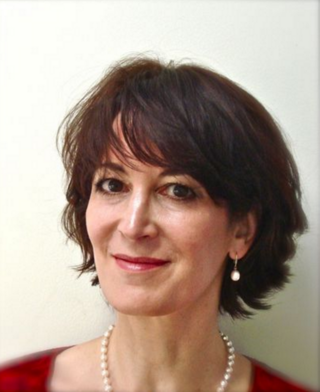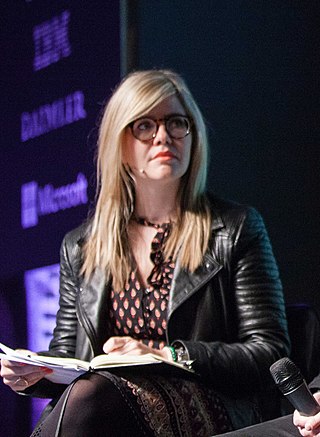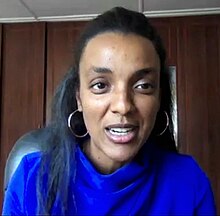
Sir Ahmed Salman Rushdie is an Indian-born British-American novelist. His work often combines magic realism with historical fiction and primarily deals with connections, disruptions, and migrations between Eastern and Western civilizations, typically set on the Indian subcontinent. Rushdie's second novel, Midnight's Children (1981), won the Booker Prize in 1981 and was deemed to be "the best novel of all winners" on two occasions, marking the 25th and the 40th anniversary of the prize.

George Joshua Richard Monbiot is a British journalist, author, and environmental and political activist. He writes a regular column for The Guardian and has written several books.
Peter Alan Oborne is a British journalist and broadcaster. He is the former chief political commentator of The Daily Telegraph, from which he resigned in early 2015. He is author of The Rise of Political Lying, The Triumph of the Political Class, and The Assault on Truth: Boris Johnson, Donald Trump and the Emergence of a New Moral Barbarism, and along with Frances Weaver of the pamphlet Guilty Men. He has also authored a number of books about cricket. He writes a political column for Declassified UK, Double Down News, openDemocracy, Middle East Eye and a diary column for the Byline Times.
Charlie Hebdo is a French satirical weekly magazine, featuring cartoons, reports, polemics, and jokes. The publication has been described as anti-racist, sceptical, secular, libertarian and within the tradition of left-wing radicalism, publishing articles about the far-right, religion, politics and culture.

John Kampfner is a British author, broadcaster and commentator. His seventh book, In Search of Berlin, The Story of a Reinvented City, was published in October 2023.
The Orwell Prize is a British prize for political writing. The Prize is awarded by The Orwell Foundation, an independent charity governed by a board of trustees. Four prizes are awarded each year: one each for a fiction and non-fiction book on politics, one for journalism and one for "Exposing Britain's Social Evils" ; between 2009 and 2012, a fifth prize was awarded for blogging. In each case, the winner is the short-listed entry which comes closest to George Orwell's own ambition to "make political writing into an art".

Kenan Malik is an Indian-born British writer, lecturer and broadcaster, trained in neurobiology and the history of science. As an academic author, his focus is on the philosophy of biology, and contemporary theories of multiculturalism, pluralism, and race. These topics are core concerns in The Meaning of Race (1996), Man, Beast and Zombie (2000) and Strange Fruit: Why Both Sides Are Wrong in the Race Debate (2008).

Douglas Murray is a British author and conservative political commentator. He founded the Centre for Social Cohesion in 2007, which became part of the Henry Jackson Society, where he was associate director from 2011 to 2018. He is currently an associate editor of the conservative British political and cultural magazine The Spectator.
Janice Turner is a British journalist, and a columnist and feature writer for The Times.
John Rhys Harris is a British journalist, writer and critic. He is the author of The Last Party: Britpop, Blair and the Demise of English Rock (2003); So Now Who Do We Vote For?, which examined the 2005 UK general election; a 2006 behind-the-scenes look at the production of Pink Floyd's The Dark Side of the Moon; and Hail! Hail! Rock'n'Roll (2009). His articles have appeared in Select, Q, Mojo, Shindig!, Rolling Stone, Classic Rock, The Independent, the New Statesman, The Times and The Guardian.

Jenni Cecily Russell is a British journalist and broadcaster. She is a columnist for The Times, a contributing writer for The New York Times, and a book reviewer for The Sunday Times. She has been a columnist for The Guardian and written the political column for London Evening Standard.

Emma Barnett is a British broadcaster and journalist who presented Woman's Hour on BBC Radio 4 from 2021 until 2024.
Ian Cobain is a British journalist. Cobain is best known for his investigative journalism into human rights abuses committed by the British government post-9/11, the secrecy surrounding the British state and the legacy of the Northern Ireland's Troubles.
George Eaton is a British writer and journalist. He is Senior Online Editor of the New Statesman, a position he was appointed to in February 2020. He was previously political editor from 2014 to 2018, joint deputy editor from 2018 to 2019, and an Assistant Editor from 2019 to 2020.

Amelia Sophie Gentleman is a British journalist. She is a reporter for The Guardian, and won the Paul Foot Award in 2018 for reporting the Windrush scandal.
Andrew Mark Norfolk is a British journalist and chief investigative reporter for The Times. Norfolk became known in 2011 for his reporting on the Rotherham child sexual exploitation scandal and other cases of on-street child grooming. He won both the Paul Foot Award and Orwell Prize for his work, and was named 2014 Journalist of the Year.
Alison Phillips is a British journalist who served as the editor of the Daily Mirror between 2018 and 2024.
Hanna Yusuf (1992–2019) was a Somali journalist who worked for BBC News as a reporter and producer.
Guy Gunaratne is a British journalist, filmmaker and novelist. Gunaratne identifies as non-binary and uses he/they/them pronouns.

We Need New Stories is a non-fiction book written by journalist and author Nesrine Malik in 2019. It discusses "toxic myths" on matters such as freedom of speech, political correctness, racial and identity politics, and national myths, discussing and how these concepts have been misrepresented – often to oppose progressive causes – and encouraging readers to question accepted norms.









